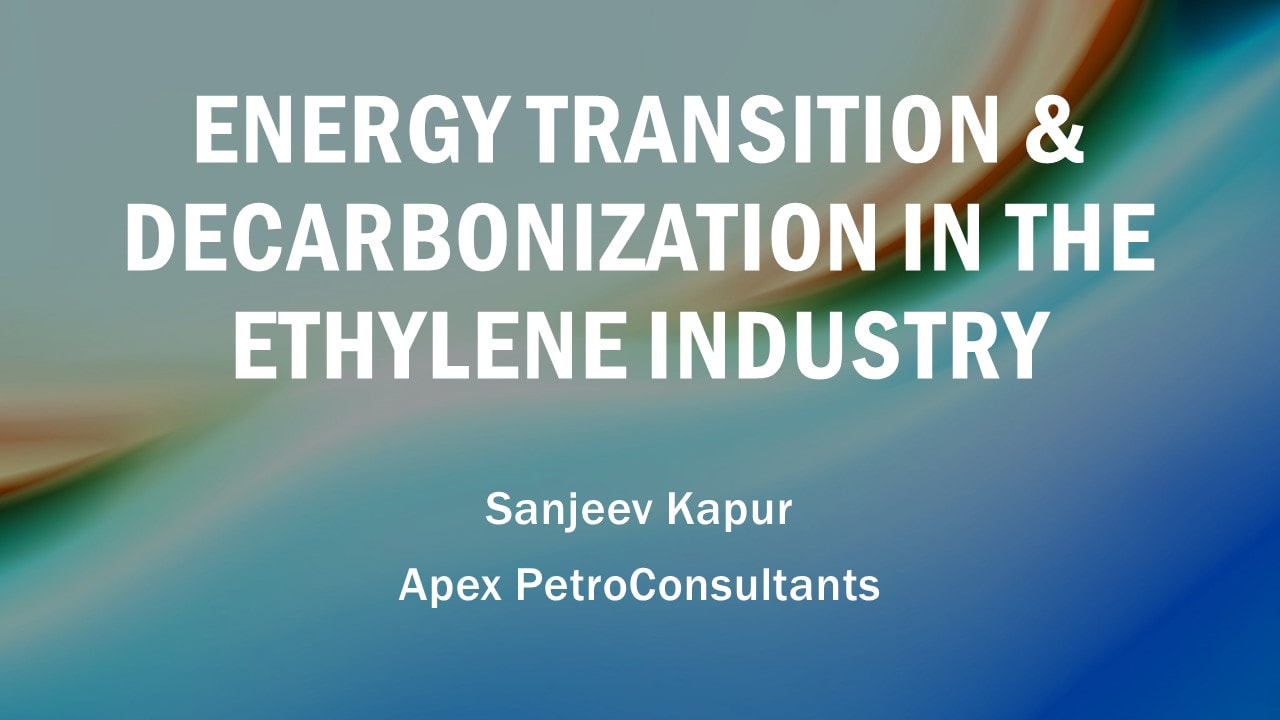Ethylene is an energy-intensive process based on high-temperature steam cracking of hydrocarbons. Ethylene production emits nearly 230 million tons of carbon dioxide (rough estimate based on 2019 ethylene production) and is the fourth largest emitter amongst industrial processes. The majority of the emissions come from steam-cracking furnaces to generate high temperatures for the reaction. The heat recovery from the furnaces is fully integrated with the downstream product recovery process for achieving high overall energy efficiency. Carbon dioxide contributes nearly 97%, methane 2%, and the rest by NOx.
Global greenhouse gas emissions are estimated to be nearly 59 Gt CO2e (based on 2010 data using the emission growth rates of nearly 2.2% experienced from 2000 to 2010). Carbon dioxide contributes nearly 81%, methane 10%, NOx 7%, and the rest by fluorinated gases.
Industry Response
The industry has acknowledged the need for decarbonization and has started rolling out targets for managing the energy transition generally in line with the Paris climate agreement. Some companies are still trying to understand the impact of decarbonization, while others will wait for the regulations and policy guidance. Many companies have also announced efforts to promote sustainability through circularity. Companies are pooling resources to promote a more sustainable world. For example, Alliance to End Plastic Waste, with more than 80 member companies, is working with policymakers, NGOs, and local communities to end plastic waste in the environment.
The industry has still to understand and price-in the impact of sustainable and decarbonized products, and their impact on the competitive landscape globally. Policy decisions around carbon pricing will drive the solutions for all economic sectors and their global reach.
Options for Ethylene Industry
A combination of decarbonization and energy transition options and scenarios could bring the emissions to Net Zero levels. Developing an optimum combination of approaches will be dictated by regional and local factors. The companies will have to assess individual facilities and sites to develop the most appropriate approaches as they can vary significantly from one site to the other. The choices will depend on zero-carbon electricity pricing, CCS infrastructure, and availability/scale of innovative technology options to be economical.
The decarbonization options could include:
- Utilizing a combination of the current state-of-the-art approaches and the best available technologies to improve energy efficiency and minimize emissions. These approaches are economically attractive first steps in the path toward decarbonization. We believe that there is a potential in the range of 10 to 30% reduction.
- Evaluating and understanding the impact of Carbon Capture and Storage (including Utilization) options. This requires understanding the current infrastructure and regulatory environment. The advantage of this option is the availability of technology that can meet emission targets.
- Electrification of the process utilizing zero-carbon electricity. Many companies have launched projects to develop technology for the electrification of cracking furnaces and these technologies will likely play a role in targets beyond 2030. This will have an impact on the ethylene plant separation section as the current facilities have a high level of energy integration.
- Using green hydrogen (generated using zero-carbon electricity) as fuel. The cost, scale, and efficiency of the process will determine economics as compared to other options. The need for distilled water as a feedstock for electrolysis needs to be investigated for future availability.
- Applying material efficiencies to plastics, including recycling, to improve overall carbon footprint.
- Integrated and clustered facilities (including small to medium scale) to drive energy efficiencies in hydrocarbon/feed management, utilities, waste handling/management, and handling/transportation of products/intermediates.
At Apex PetroConsultants, we work together with client teams to assess decarbonization approaches for each individual facility and site that are economical to meet short to mid-term targets while focusing on the longer-term net-zero approaches.


 RSS Feed
RSS Feed